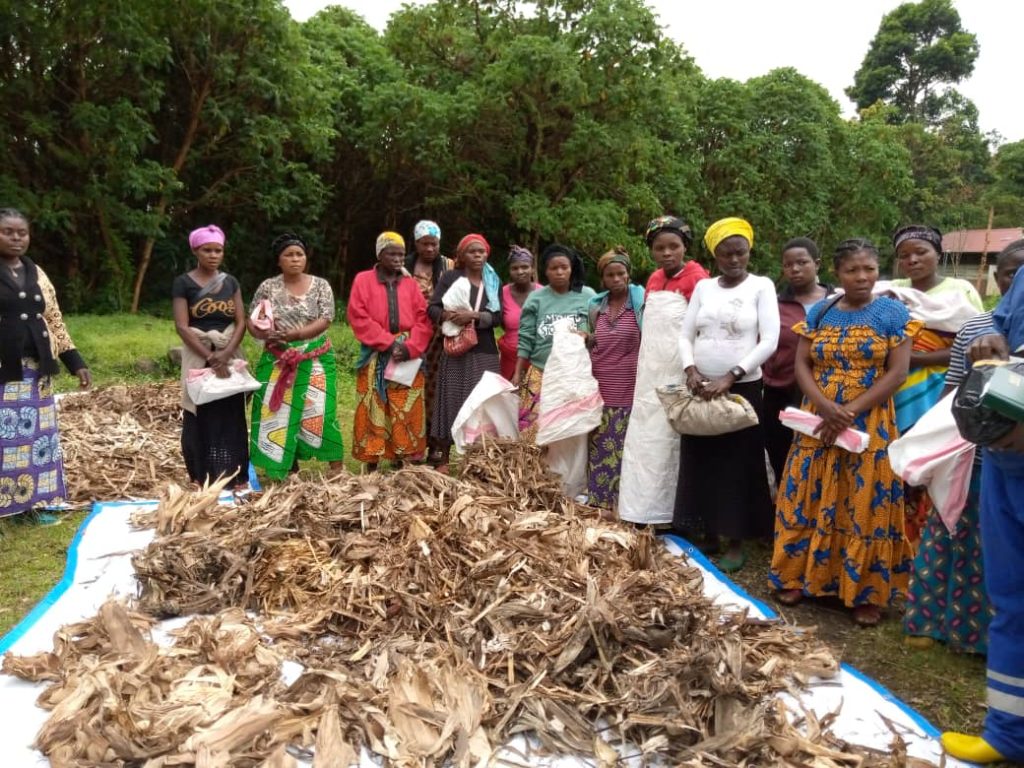“Plant gold” is the new name given to dried plant residues (dried peanut pods, maize leaves, and other dead leaves) by Pygmy women and other indigenous people in South Kivu province in the east of the Democratic Republic of Congo (DRC). The name “plant gold” comes from the fact that plant residues are used as raw materials for the manufacture of ecological embers. This know-how was introduced to about twenty women from different villages, including Buyungule, Kafulumaye, and two others located in the Kahuzi-Biega National Park (KBNP).
The training, which lasted one week (from 2 to 7 March 2020), was divided into two parts, one theoretical and the other practical. These included the methodology of charcoal making, as well as ecological briquettes or paving stones. These briquettes can be used for the construction of modern kitchens and other buildings. The training was provided by the Agency for the Promotion and Development of Tourism (Aprovatour), a partner of the PNKB. Based in Bukavu in the province of South Kivu in the east of the country, the agency works to promote sustainable tourism (ecotourism) and environmental protection in the DRC.
read also-DRC: Action to dislodge M23 rebels from Virunga National Park
“It is due to the deforestation and carbonization of certain parts of the KBNP by the indigenous populations neighboring the park that the animals and a large part of the ecosystem of this beautiful world heritage site are in danger. This is why we have organized such an activity to save the biodiversity of the KBNP,” explains Bernadette Atosha Byemba, a teacher and researcher at the Institut supérieur pédagogique de Bukavu (ISP-Bukavu), and coordinator of Aprovatour.
Through this training, Aprovatour also wants to improve the integration of women and girls in the field of ecotourism. A sector that is still dominated by men in the DRC.
Boris Ngounou
